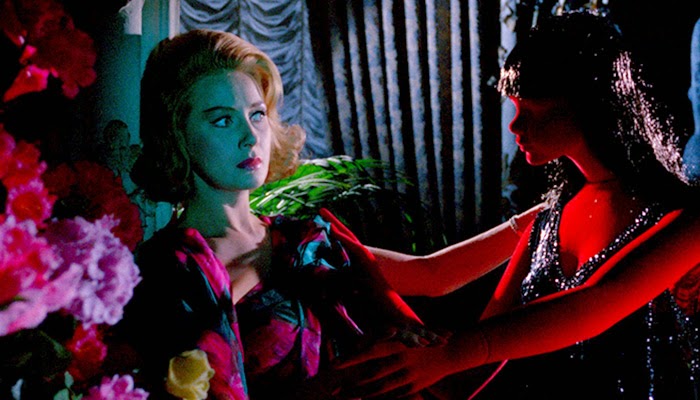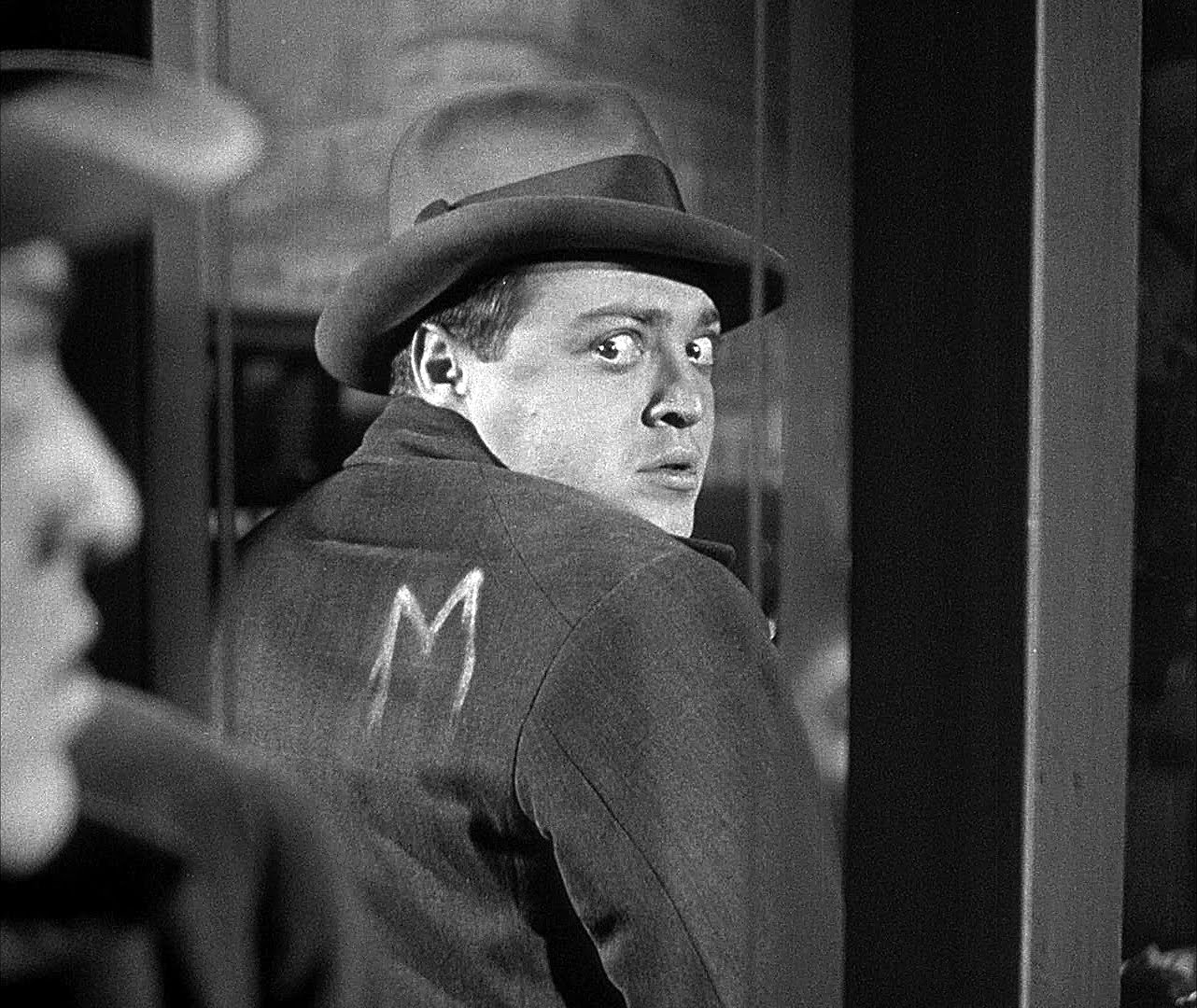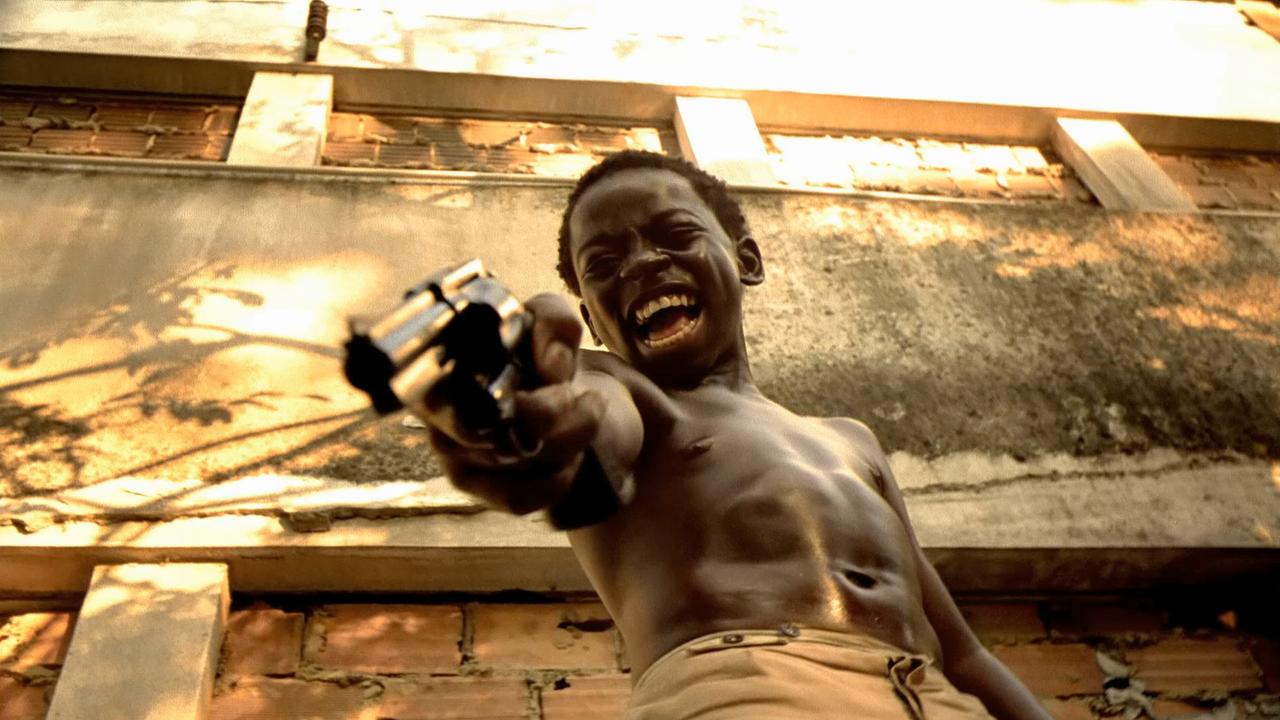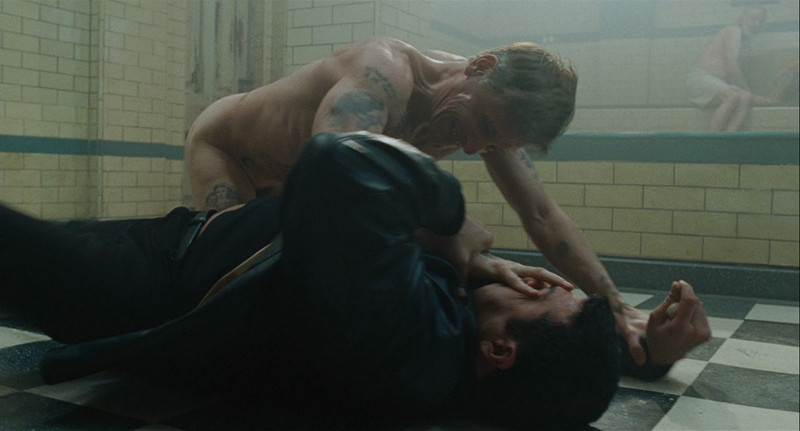
Certainly part of the attraction to crime films come from the exciting, often thrilling audacity of the antagonist, the lengths they will go to and the often barbaric extremes of the vileness they commit. And for genre fans often the more upsetting and outright shocking, the more memorable and rewarding the overall experience.
The films on this list show a wide-ranging assortment of crime-centric stories which include auteur-driven vehicles, influential movies, astonishing international fare, a few blockbusters, and distinctive arthouse gems, too.
But be warned, the films that follow will linger a long time with the viewer, many of which you may need a stiff drink upon viewing to help settle one’s nerves. You’ve been warned and now please proceed and with caution.
15. L’humanité (1999)

Gorgeously photographed in CinemaScope, Bruno Dumont’s gritty, gruesome and controversial L’humanité was his award-winning second feature (after 1997’s The Life of Jesus), widely considered his masterpiece. Starring non-professional actor Emmanuel Schotté as a police detective investigating the brutal rape and murder of a young girl.
Functioning primarily as a metaphysical detective yarn, Schotté portrays the seemingly autistic Pharaon de Winter, a provincial detective who longs incessantly for his young neighbor (Séverine Caneele). Both Caneele and Schotté rightly received the acting prize at Cannes in 1999 for their stunning, graceful and compassionate performances.
Powerhouse performances aside, part of what makes Humanité so captivating and ultimately all the more chilling is its painterly close-ups and long shots of idyllic and rural countryside damaged by darkness and death.
An austere and quasi-realist spectacle, L’humanité’s transcendentalist overtones offer Dumont a distinctive auteur title, and is an unmissable movie for genre fans and arthouse enthusiasts who like to be haunted by the art they take in. This film is a dark but designful gem.
14. Blood and Black Lace (1964)

One of the linchpins from the Golden Age of Italian horror, Mario Bava’s Blood and Black Lace is more than just a proto-slasher horror thriller, it’s one of the most influential and gorgeous giallo films ever made while also being one of the most bone-janglingly chilling as well.
The spare plot, which take the backseat to the often overpowering visuals on proud display, involves a masked man with a metal-claw glove who stalks models at an upscale fashion salon in fashion salon in Rome. Max (Cameron Mitchell) and Christina Marian (Eva Bartok) are the fashionistas targeted by the killer, who fear a potential scandal, and there’s the atypical police investigators –– often totally useless in giallo films –– after the killer but not getting anywhere fast.
Of course the real draw to Blood and Black Lace, and what makes it such an entertaining thrill ride, is the detail, design, and carefully constructed complexity, elaborate death scenes, and kaleidoscopic color that Bava brings to the table. Gruesomely stylish, abundant and often overpowering washes of lurid color, an ever-roving camera and crazily choreographed carnage makes for a beautiful, baffling, and innovative storm of imagery, décor, and garishly gruesome style.
13. M (1931)

Based on the real life manhunt for a Düsseldorf childmurderer, Fritz Lang (Metropolis [1927]) chose M for his first sound film and the chilling result is both an analytical and radical dissertation on authority and law.
Peter Lorre’s performance is nothing short of extraordinary as child murderer Hans Beckert, and the role quickly established him as a sinister cinematic icon.
Dogging Beckert’s trail is Inspector Lohmann (Otto Wernicke), desperate to catch the scourge plaguing his city for the last eight months. But Lohmann’s not the only man bent on identifying and bringing the murderer to justice. The bolstered police presence has put scads of pressure on the underworld and the black market, causing the formation of a crime syndicate, “The Ring” to track down the killer so that they can return to their shady practices without fear of John Law.
Lang’s contemporary setting and realistic milieu in M was quite incendiary and effective at the time, adding an element of complexity and social commentary that was largely absent in cinema, and certainly the subject matter and sadistic plot elements rattled censors and sensitive theater goers like little else that came before it. Mob rule, the legal system and morality were just some of the themes Lang skewered and dissected in this murderous masterpiece.
12. Prisoners (2013)

Beastly horrors lurk in the behind-closed-doors narrative of Denis Villeneuve’s Prisoners, which reteams the director with Jake Gyllenhaal (who also starred in his intense 2013 psychological thriller Enemy). Gyllenhaal plays Detective Loki on the case of two missing girls in an emotionally complex ensemble piece that also stars Maria Bello, Paul Dano, Hugh Jackman, and Viola Davis.
Prisoners is a haunting, deep-seated and disturbing film, the kind you carry around afterwards, processing and pondering it all, and makes for a very rewarding experience. If you don’t mind the disturbing and chilling content, of course.
Buoyed immeasurably by cinematographer Roger Deakins, the framing is sharp, bristling with energy and a compulsive panache that makes turning away all but impossible, even when some of the more nightmarish aspects of the film perturb and exasperate the viewer.
Prisoners is not always easy to take, especially with the subject matter, but Villeneuve is a gifted and calculating craftsman, and while his film may take no prisoners, it also sets the viewer free with a purgative wheeze and an audible gasp.
11. City of God (2002)

While it’s highly debatable that Fernando Meirelles and Kátia Lund’s City of God could not exist in a post-Scorsese/post-Tarantino world, this visceral, and ultra-violent crime epic that explodes from the poverty-afflicted favelas of Rio de Janeiro thrums to a vibrant beat all its own.
Adapted from Paulo Lins semi-autobiographical 1997 novel of the same name, City of God spans the late 1960s through to the early 1980s in Rio’s Cidade de Deus suburb, and the organized crime that manifests there, like a terrible cancer.
Alexandre Rodrigues is magnificent as Rocket, a sweet-natured boy and budding photographer who documents the growth of drug-related gang violence in his homelands. Also impressive in this multi-protagonist socio-political odyssey, almost like a rich anthology of tragedy, is Seu Jorge as the pushed-too-far “Knockout Ned,” and a marvelously impressive collection of some of the finest child actors ever to grace the screen (their scenes of bloodlust and violent outrage are absolutely harrowing and warrant the film’s place on this list).
In turns beautiful, funny, horrific, humane, shocking, vulgar, tragic, and always thought-provoking, City of God is a model crime film that’s nearly impossible to shake. A bone-chilling must see.
10. Eastern Promises (2007)

The most startling and memorable takeaway from this much-acclaimed gangster film from David Cronenberg has got to be the uncompromising, unforgettable and unflinching bathhouse brawl –– featuring a notorious au naturel knife fight with Viggo Mortensen –– that once viewed can never be unseen. This extraordinary follow-up and companion piece to 2005’s A History of Violence, Eastern Promises is a darkly disturbing, morally complex, and frighteningly enigmatic masterpiece.
Anna Khitrova (Naomi Watts) is a Russian-British midwife living in London who is soon drawn into a shocking and upsetting world of Russian mobsters and nasty ne’er-do-wells after a drug-addicted 14-year old prostitute dies in childbirth. In a much deserved Oscar-nominated performance is Mortensen as Nikolai Luzhin, a strong-arm thug for a messy mobster named Kirill (Vincent Cassel), who is the loose canon son of a Russian godfather known as Semyon (Vincent Cassel).
But man, no matter what you think or say about Eastern Promises, all discourse must circle back to that intensely unforgettable knife fight. Holy shit. Roger Ebert ecstatically proclaimed that it “sets the same kind of standard that The French Connection set for chases. Years from now, it will be referred to as a benchmark,” and who are we to disagree?
9. Monster (2003)

Patty Jenkins’s distinguished directorial debut, which she also wrote, details the harrowing real-life story of Aileen Wuornos (Charlize Theron, in a brilliant, Oscar-winning performance).
Monster picks up shortly after Aileen, a sex-worker, has relocated to Florida. Here she soon meets Selby Wall (Christina Ricci), a younger woman, and the two fall in love. When an aggressive john named Vincent (Lee Tergesen) brutally attacks Aileen, she kills him in self-defense and decides to finally give up prostitution.
A series of financial setbacks and Aileen’s wanting to protect and support Selby leads her back into hooking men and, secretly from Selby, she murders the men who seek her services.
A challenging, deeply troubling, intense, and tragic film, Monster is a riveting work. While Theron’s performance is overwhelming and gilt-edged, Jenkins deserves credit for solid direction, tightly composed frames and well-orchestrated frights. A haunting, hard and effectual film that’s not easy to shake.